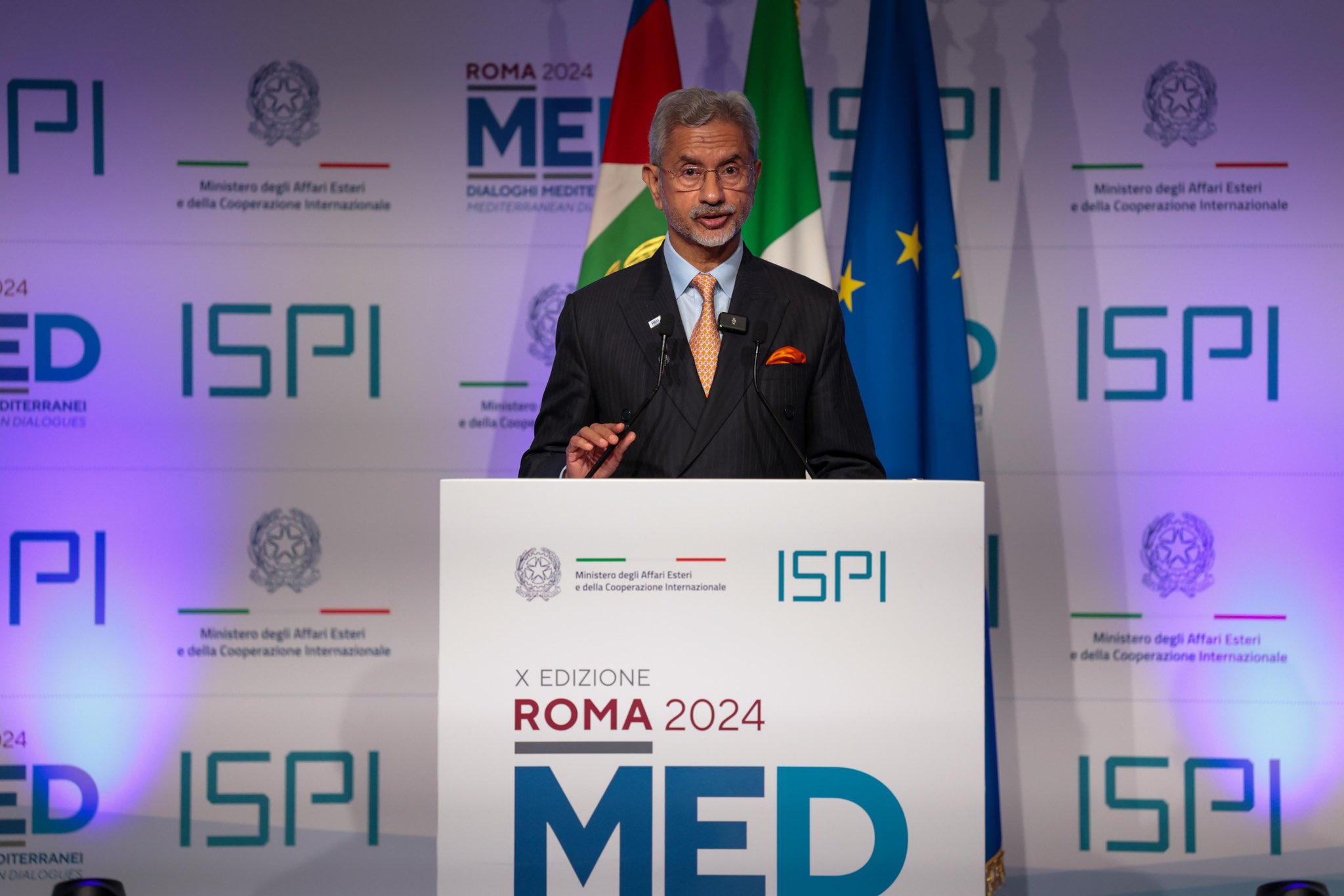External Affairs Minister S. Jaishankar emphasized the growing importance of connectivity in strengthening India’s relationship with the Mediterranean region, describing the India-Middle East-Europe Economic Corridor (IMEC) as a potential “game changer.” Speaking at the MED Mediterranean Dialogues Conference in Rome on Monday, Jaishankar highlighted how connectivity would be a new key element in these ties, particularly amid the ongoing Middle Eastern conflict and its regional impacts.
“The Mediterranean presents both opportunities and risks in an uncertain and volatile world. Beyond extrapolating current trends, the new element of our relationship will be connectivity. The IMEC, the India-Middle East-Europe Economic Corridor that was announced in September 2020, can be a game changer,” Jaishankar said in his opening remarks.
He acknowledged the challenges posed by the current Middle East conflict but assured that progress on IMEC continues, especially between India, the UAE, and Saudi Arabia. Jaishankar also highlighted the significance of the I2U2 grouping, which includes India, Israel, the UAE, and the US, predicting that it would become increasingly active in the future.
The IMEC, launched during India’s G20 presidency, aims to enhance connectivity and integration between India, the Middle East, and Europe through a network involving countries like the UAE, Saudi Arabia, Jordan, Israel, and the European Union. Jaishankar’s comments at the conference emphasized the continued forward momentum despite regional tensions.
Shifting focus to India’s engagement with the Mediterranean, Jaishankar revealed that the region holds substantial economic and political relevance for India, with annual trade totaling approximately USD 80 billion. He also said the presence of a large Indian diaspora, with about 460,000 people residing in Mediterranean countries, 40 percent of whom are based in Italy.
India’s key interests in the Mediterranean, according to Jaishankar, span various sectors, including fertilizers, energy, technology, diamonds, defense, and cyber capabilities. India is also actively involved in significant infrastructure projects, such as airports, ports, railways, and green hydrogen initiatives.
Jaishankar further explained India’s robust ties with the Middle East, citing the Gulf region’s annual trade with India, which stands between USD 160 billion and USD 180 billion. An additional USD 20 billion comes from trade with the broader Middle East and North Africa (MENA) region. He highlighted the substantial presence of over 9 million Indians living and working in the Middle East, with India’s activities there deeply rooted in energy, technology, industrial projects, and services. The Minister also acknowledged India’s long-standing historical, cultural, and security ties with the region.
“Let me now shift to the Middle East and present India’s interest there. Our trade with the Gulf alone is in the range of 160 to 180 billion dollars annually. The rest of MENA adds about another USD 20 billion. More than 9 million Indians live and work in the Middle East. Whether it is energy, technology, industrial projects, or services… It is also a region to which we are connected in history, culture, and security,” Jaishankar said, adding that India’s presence and activities in the region would continue to grow as the country advances towards becoming the third-largest economy in the world.
Jaishankar’s remarks came as part of his ongoing three-day official visit to Italy, during which he is also participating in the Outreach Session of the G7 Foreign Ministers’ Meeting in Fiuggi, Italy, where India has been invited as a guest country.
(Inputs from ANI)














